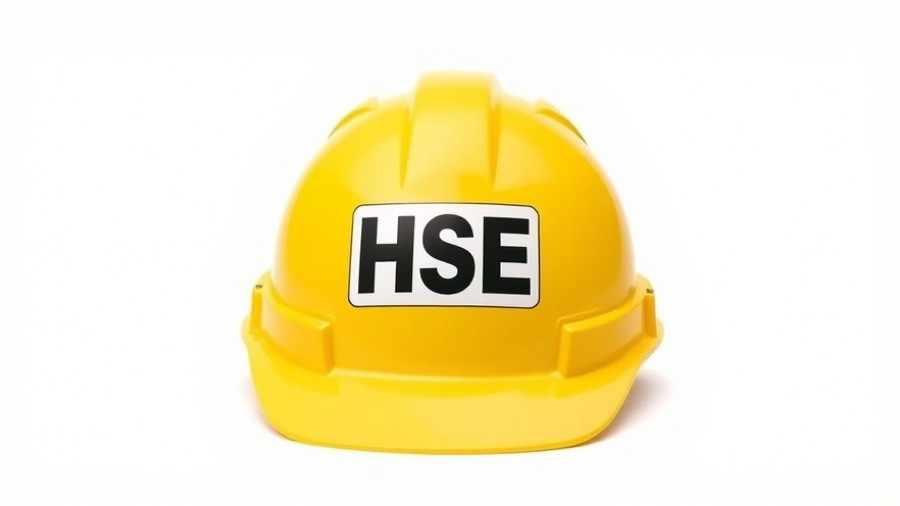
Understanding the Tragic Incident at Marlborough Highways
The recent tragedy involving Marlborough Highways has sent shockwaves through the London construction community. An employee, Robert Morris, lost his life after being struck by a reversing road sweeper during a resurfacing project on Pemberton Road. The death, which occurred on May 30, 2022, was the result of a dangerous working environment where proper safety precautions were not followed. This incident highlights critical issues surrounding workplace safety in the construction industry.
The Importance of Safety Standards
The Health & Safety Executive (HSE) launched an investigation that revealed several systemic failures at the worksite. No segregation was established between pedestrians and moving vehicles, raising significant concerns about worker safety. There was also a notable absence of a banksman – a crucial safety role responsible for guiding reversing vehicles – during the incident. Such oversights indicate a troubling disregard for established safety protocols intended to protect workers.
In the aftermath, Marlborough Highways pleaded guilty to violating Sections 2(1) and 3(1) of the Health and Safety at Work Act 1974. The company was fined £1 million and ordered to pay an additional £6,028 for costs. Such legal repercussions serve as a grim reminder of the potential costs of negligence.
A Community's Reaction
As we reflect on this tragic incident, the community's response has been one of mourning and outrage. The widow of Robert Morris shared heartfelt sentiments, emphasizing the profound loss felt by their family. The children, she noted, are “sad and angry,” feeling robbed of the future they deserved with their father. This emotional impact on families is often overlooked in discussions about workplace safety, yet, it is pivotal in understanding the real consequences of such accidents.
Learning from Failures: The Need for Enhanced Safety Protocols
The HSE's principal inspector, James Goldfinch, underscored the necessity for better safety measures, stating that workers should have stringent protections during site operations. The case of Marlborough Highways points to a need for companies to revisit their safety training programs and ensure that all employees are aware of the protocols designed to safeguard their lives.
Common safety practices include proper traffic management, frequent safety drills, and ensuring that all workers understand the importance of their roles in upholding a secure working environment. In light of this incident, other companies in the construction sector must take proactive steps to assess their own safety protocols and prevent future tragedies.
Implications for the Construction Industry
The £1 million fine levied against Marlborough Highways is not just a financial penalty; it's a wake-up call for the entire UK construction industry. Similar firms must take heed and reassess their operational safety practices to avoid the pitfalls that led to this devastating incident. Comprehensive training and constant vigilance in enforcing safety standards can safeguard lives and prevent avoidable accidents.
Conclusion: A Call for Safety Culture Transformation
For young homeowners and DIY enthusiasts, it is crucial to understand the implications of construction safety and the importance of hiring contractors who prioritize worker safety. As the local community continues to mourn, it is an opportune moment to advocate for a robust safety culture within construction firms. By valuing human life over profit, the industry can pave the way for safer working environments and ultimately prevent similar tragedies.
If you are involved in home improvement projects, ensure you work with reputable contractors who prioritize safety and compliance with regulations.
 Add Row
Add Row  Add
Add 




Write A Comment